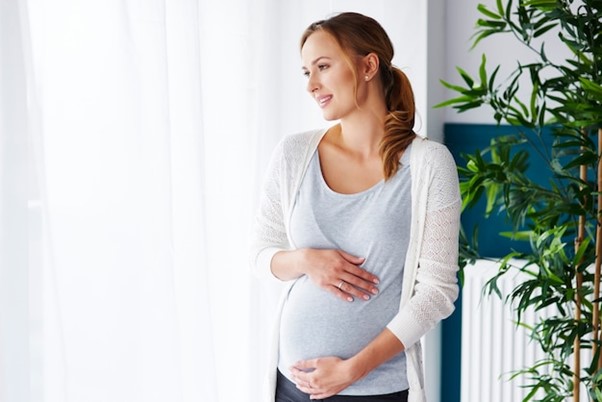- Home
- Pregnancy Care

What is Pregnancy?
Pregnancy is the period during which a fertilized egg develops into a baby inside a woman’s uterus. It typically lasts about 40 weeks, or roughly nine months, from the first day of the last menstrual period to the birth of the baby.
Stages of Pregnancy
Pregnancy is divided into three trimesters, each with its own unique developments and challenges.
First Trimester (0-13 weeks):
- Early signs of pregnancy can include missed periods, nausea (morning sickness), breast tenderness, and fatigue.
- Major developmental milestones include the formation of the baby’s organs, the heart starting to beat, and the beginnings of the brain and spinal cord.
Second Trimester (14-26 weeks):
- Many women find this period more comfortable as morning sickness usually subsides.
- The baby continues to grow, with development of facial features, movement felt by the mother (quickening), and the ability to hear sounds.
- Routine ultrasounds can often determine the baby’s sex and check for any developmental issues.
Third Trimester (27-40 weeks):
- The baby gains weight rapidly, with final development of the lungs and other organs.
- The mother may experience discomfort due to the growing belly, back pain, and increased fatigue.
- Preparations for birth become more intensive, including birth plans and final medical check-ups.
Common Symptoms of Pregnancy
Throughout pregnancy, women may experience various symptoms, including:
- Nausea and vomiting (especially in the first trimester)
- Fatigue and sleep disturbances
- Swelling of feet and ankles
- Back pain and pelvic discomfort
- Heartburn and digestive issues
- Frequent urination
- Mood swings and emotional changes
Prenatal Care
Prenatal care is crucial for monitoring the health of both the mother and the baby. Key components include:
- Regular Check-Ups: Frequent visits to an obstetrician or midwife to track the pregnancy’s progress.
- Ultrasound Scans: Used to monitor the baby’s growth and development.
- Blood Tests: To check for anemia, blood type, gestational diabetes, and infections.
- Prenatal Vitamins: Especially folic acid, iron, and calcium to support the baby’s development and maternal health.
- Healthy Lifestyle: Including a balanced diet, regular exercise, avoiding harmful substances (like alcohol and tobacco), and managing stress.
Labor and Delivery
Labor and delivery mark the end of pregnancy and the beginning of parenthood. The process includes:
- Early Labor: Characterized by contractions that help dilate the cervix.
- Active Labor: More intense contractions leading to full dilation of the cervix.
- Delivery: The baby is pushed through the birth canal and delivered.
- Afterbirth: Delivery of the placenta following the baby’s birth.
Postpartum Care
After delivery, postpartum care is essential for recovery and adjustment to motherhood. This includes:
- Physical Recovery: Healing from childbirth, whether vaginal or cesarean.
- Emotional Support: Addressing the potential for postpartum depression or anxiety.
- Breastfeeding Support: Guidance and assistance for mothers who choose to breastfeed.
- Follow-Up Visits: Regular check-ups to ensure both mother and baby are healthy.
Pregnancy is a complex and transformative journey requiring careful monitoring and support to ensure the health and well-being of both mother and baby.

